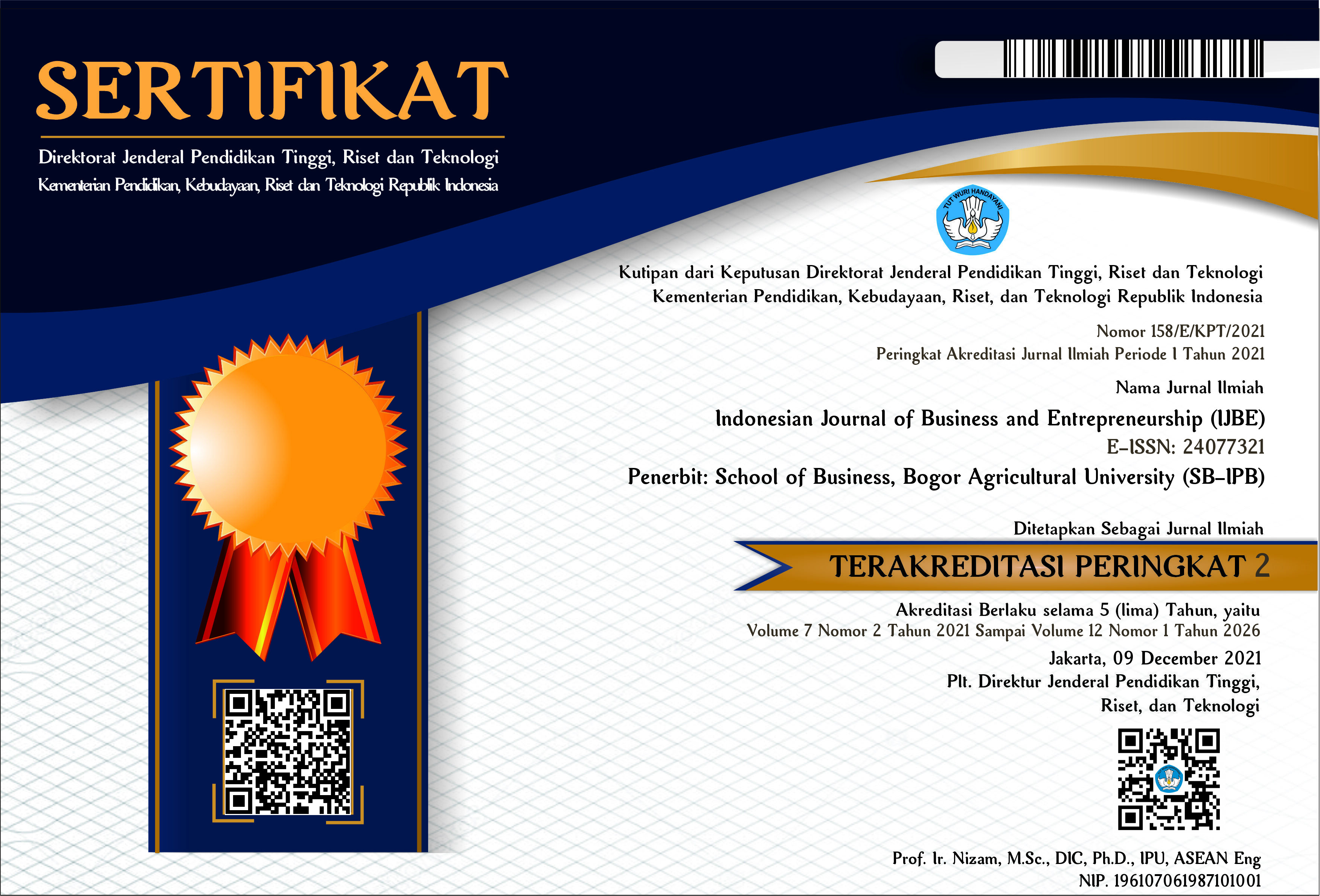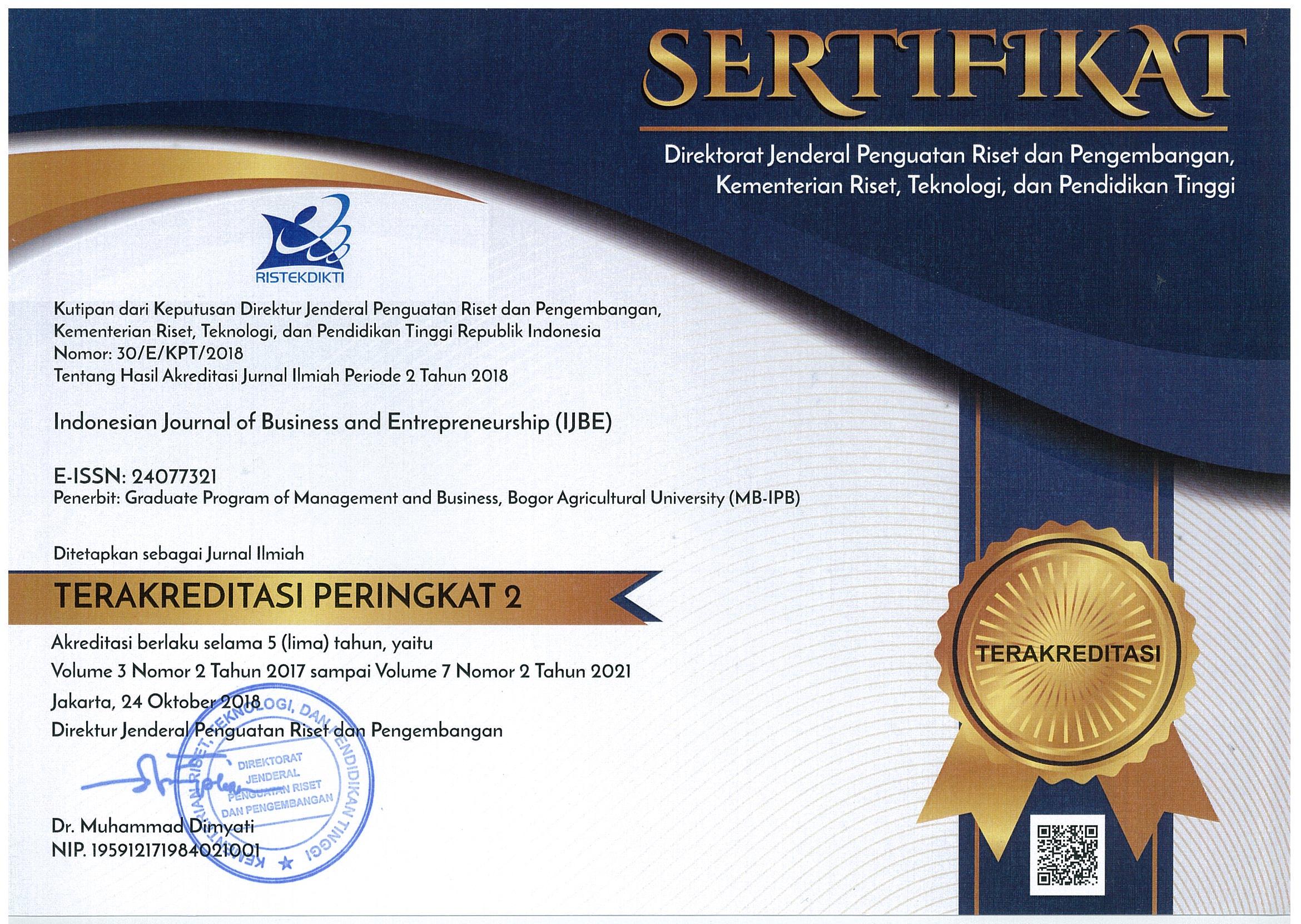Marketing Mix Effect Towards Customer Satisfaction and Loyalty: Case Study of Rejuve Cold-Pressed Drinks
Abstract
The leading factor of cold-pressed drinks is to make the product having a premium price compared to other fruit and vegetable juice drinks. The main purpose of this study is to explore the factors marketing mix that influence satisfaction and customer loyalty to Rejuve cold-pressed drink. The SEM model is used to see the effect of relationships between the variables studied. The model was analyzed using LISREL SEM analysis. The used sampling technique is purposive sampling with190 respondents involved. The results of the analysis suggest that marketing mix variable such as products, prices, and promotions are affecting consumer satisfaction and loyalty. Another result point out that satisfaction has a significant influence on Rejuve custumer loyalty. Managerial implication of this research is focusing on the benefits of the product. The benefits of the product are product marketing mix factors that have advantages over satisfaction, so that the strategies carried out with Rejuve products provide education to consumers in increasing the benefits of their products, by including the benefits of products on packaging. It is expected to be able to attract consumer interest about the benefits of the product and encourage the trend of increasing the product marketing mix to customer satisfaction and loyalty.
Keywords: Cold-pressed, fruit and vegetable juice drink, premium price, SEM analysis







